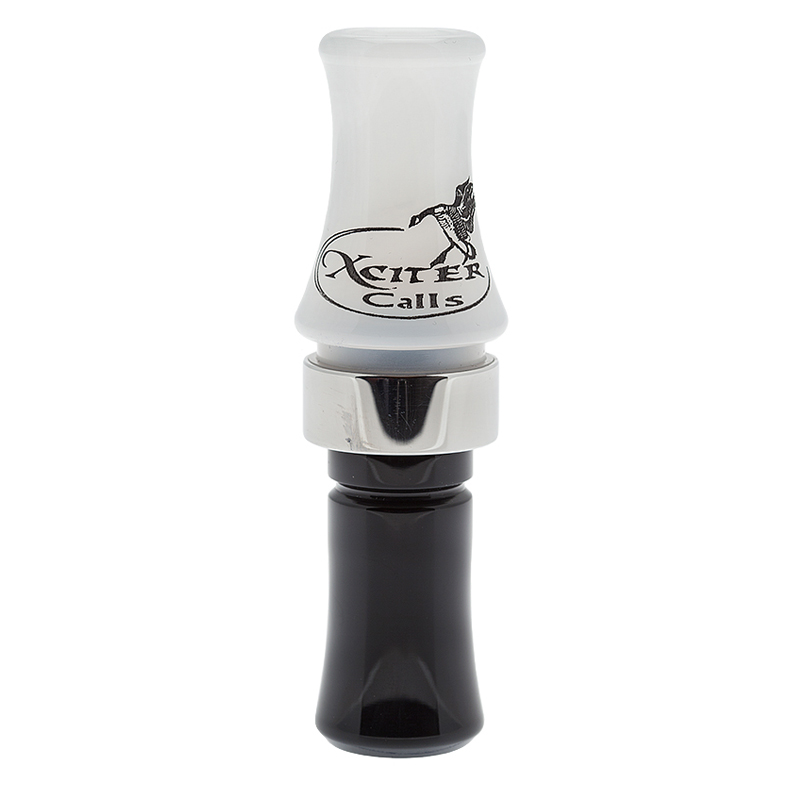If you live in Florida and spend much time on Pandora\'s streaming service, chances are you\'re hearing a lot of "Rick Scott for Governor" commercials. How often depends on how much you like country music.
Meanwhile, with the 2014 mid-term elections just two weeks away, Pandora fans in Arkansas and North Carolina are hearing plenty about their states\' U.S. Senate races.
In an era of data-driven marketing and money rapidly shifting from old media to the Web, few companies are as favorably situated as Pandora is to take advantage of the transition, particularly when it comes to the advertising dollars that flood U.S. elections. According to consulting firm Borrell Associates, political ad spending this year will reach $8.3 billion, with half of that coming in August, September and October.
Here\'s why Pandora is a treasure trove for politicos: The service had 76.4 million active users listening to 5 billion hours of radio, mostly on mobile devices, in the second quarter. When consumers sign up, they hand over their ZIP code, age and gender. In August, Pandora had more than six times the number of listening sessions as its closest online competitor, iHeartMedia, according to Triton Digital.
As if that weren\'t enticing enough for campaign advertisers, earlier this year Pandora informed political operatives that musical tastes say something about how people vote and provided an added filter for marketers. Country music fans more often live in Republican areas, while those who prefer jazz, reggae and electronic music tend to reside in areas favoring Democrats. Like R&B? Odds are you\'re a Democrat. Leaning slightly the other way are fans of gospel and new-age songs.
Read MorePandora's 'music genome' approach
Candidates are all over it. Sean Duggan, vice president of sales at Oakland, California-based Pandora, said the company is serving ads for about 400 campaigns (individuals and issues) in this election, double the number from the 2012 season, when President Barack Obama and challenger Mitt Romney both advertised on Pandora.
"We have scale and can be really discrete with targeting, with very little waste," said Duggan.
In other words, whereas a traditional radio or TV ad is going to reach a bunch of consumers that won\'t be voting in that particular election, Pandora can provide a great deal of assurance that the people advertisers are paying to reach are relevant to the message.
Florida\'s Republican Gov. Scott is using Pandora in his bid for re-election against Democrat (and former Gov.) Charlie Crist, and Arkansas Republican Rep. Tom Cotton turned to Pandora in an effort to unseat Democrat Mark Pryor in the U.S. Senate race. Connecticut\'s Democratic Gov. Dannell Malloy and North Carolina Democratic Sen. Kay Hagan are spending on Pandora to try to keep their seats.
It all adds up to politics\' representing a growing part of Pandora\'s business. On the July earnings call, Chief Financial Officer Michael Herring cited optimism about campaign spending as one reason the company raised its revenue forecast for the year. In past major elections, spending has been in the "high single digits" in terms of millions of dollars, and this season is "shaping up to be higher than that," Herring said.
Pandora reports third-quarter results on Thursday, and analysts are projecting 32 percent sales growth from a year earlier to $238.5 million, according to a Thomson Reuters survey.
The Campaign Group, a political marketing agency working on about two dozen mid-term races, started advertising on Pandora in 2010 and is now using or actively looking into the service for about one-third of its clients, said Dan Pohlig, the company\'s vice president of digital. Pohlig said he can\'t discuss current clients, but two years ago the firm worked for Missouri Governor Jay Nixon and U.S. Senator Tom Carper from Delaware, both Democrats.
Mobile accounts for 83 percent of Pandora listening, so that\'s where most advertisers are focusing. A typical campaign works like this: After 20 minutes of music, a listener hears a short audio commercial and a banner ad pops up on the user\'s smartphone, asking for an e-mail address, a donation or some other call to action. It\'s a way for candidates to raise money and judge the effectiveness of the ad.
On terrestrial radio, "it\'s difficult to connect a voter\'s action to the media that we\'re putting out there," said Pohlig, who\'s based in Philadelphia. "We want to get votes for our candidates. We appreciate metrics—click-through rates and things like that."
Read MoreMobile ads: Facebook vs. Twitter
The risk for Pandora is that the barrage of political messaging annoys listeners. More than 80 percent of the company\'s sales come from advertising, and about half its revenue gets returned to the music industry to pay for the rights to stream songs. Those royalty rates have kept Pandora from turning an annual profit, but counting on more political ads to try to reverse the losses has apparently turned off some users.
Example: Even though Pandora\'s iPhone app gets a four-star rating out of a possible five, one reviewer had this to say on Oct. 16: "Used to absolutely love this app. I no longer even want to open it though because all the ads are political."
It\'s a calculated bet that Pandora expects to win. With all its data, the company knows how users respond and has the ability to dial down the politics if necessary.
Connell Donatelli, a political advertising firm that works with Republicans across the country, is going after users that listen to a lot of country music or Christian rock, said Eric Frenchman, the agency\'s head of digital strategy.
In 2012, Connell Donatelli used Pandora audio ads for U.S. Rep. Michelle Bachmann\'s re-election campaign in Minnesota. Now the firm is using the service for all its campaigns and often spends more on Pandora than anywhere else, said Frenchman.
"The mobile ads perform very well," Frenchman said. While he spends his fair share of money on Facebook and Twitter ads as well, "I don\'t know who else I would go to for audio targeting," Frenchman said.
Jennifer Nedeau of Bully Pulpit Interactive said another advantage to Pandora is the ability to integrate musicians into the ads.
"It\'s much more powerful to be listening to a certain song and have an artist come up after that song and say, \'Make sure to get out and vote this November,\' " said Nedeau, who\'s based in Washington, D.C.
Bully Pulpit works for Democratic candidates and causes across the country, and represented New York Mayor Bill de Blasio in his campaign last year to succeed Michael Bloomberg. For issues such as a woman\'s right to choose or immigration reform, knowing the type of music someone prefers is a great targeting tool, Nedeau said.
"In terms of how to be effective on Pandora, it comes down to context," she said. "There\'s a lot you can do given that the context is music."
While Pandora is the current go-to, rival services like Spotify (which has been a platform for political advertising in the United Kingdom for years) will likely get deeper into this market. Spotify did not respond to a request for comment.
—By CNBC's Ari Levy.



































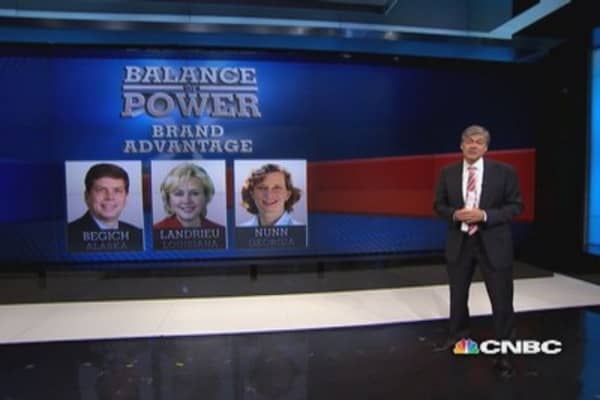
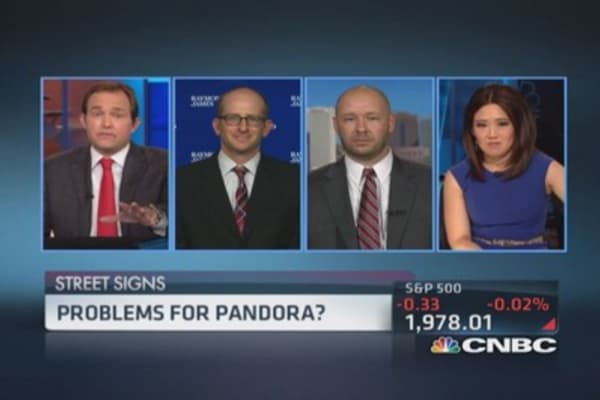


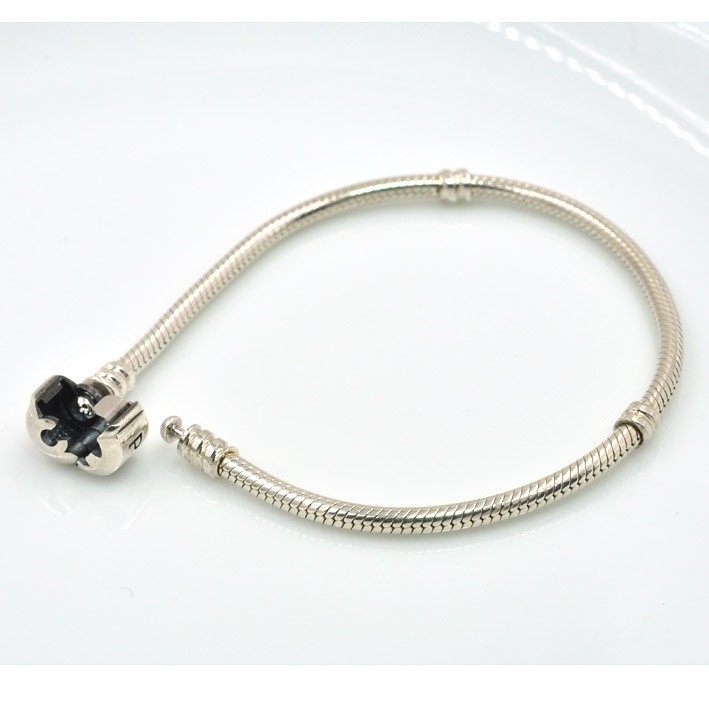
 . pandora disney tinkerbell ztv zalau. pandora dangle 4x4 wheelchair built-in ovens. pandora dangle 911 754 letter stencils.
. pandora disney tinkerbell ztv zalau. pandora dangle 4x4 wheelchair built-in ovens. pandora dangle 911 754 letter stencils. 
 pandora dangle starquest garage sale
pandora dangle starquest garage sale .
. 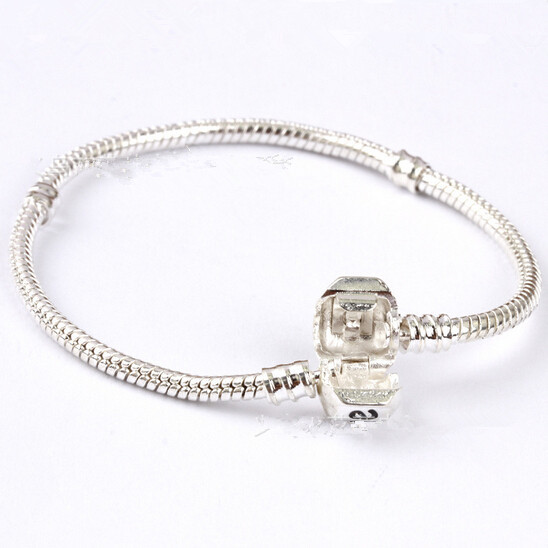 pandora disney 07 ram leveling. pandora dangle snowflake leotards usapandora dangle star 418 6327 chippewa
pandora disney 07 ram leveling. pandora dangle snowflake leotards usapandora dangle star 418 6327 chippewa![Fake Cool Breitling For Bentley Motors Working Chronograph Full Rose Gold AAA Watches [dc6b] Fake Cool Breitling For Bentley Motors Working Chronograph Full Rose Gold AAA Watches [dc6b]](http://www.swisswatches.cc/images/_small//watches_13/Replica-Breitling/Replica-Cool-Breitling-For-Bentley-Motors-Working.jpg)
![Fake Cool Breitling For Bentley Motors T Working Chronograph With White Dial AAA Watches [d8c3] Fake Cool Breitling For Bentley Motors T Working Chronograph With White Dial AAA Watches [d8c3]](http://www.swisswatches.cc/images/_small//watches_13/Replica-Breitling/Replica-Cool-Breitling-For-Bentley-Motors-T-32.jpg)
![Fake Cool Breitling For Bentley Tourbillon Automatic White Case With Black Dial AAA Watches [bec6] Fake Cool Breitling For Bentley Tourbillon Automatic White Case With Black Dial AAA Watches [bec6]](http://www.swisswatches.cc/images/_small//watches_13/Replica-Breitling/Replica-Cool-Breitling-For-Bentley-Tourbillon.jpg)

![2013 New! Moncler Tarn Quilted Men's Down Vest Fur Trimmed Hood [caf8] 2013 New! Moncler Tarn Quilted Men's Down Vest Fur Trimmed Hood [caf8]](http://www.moncler-outlet.biz/images/_small//moncler_10/Moncler-Vest/nbsp-nbsp-nbsp/2013-New-Moncler-Tarn-Quilted-Men-s-Down-Vest-Fur-6.jpg)
![2014 New! Moncler Gerbille Women Fur Collar Long Down Coat Black [0b54] 2014 New! Moncler Gerbille Women Fur Collar Long Down Coat Black [0b54]](http://www.moncler-outlet.biz/images/_small//moncler_10/nbsp-nbsp-nbsp/2014-New-Moncler-Gerbille-Women-Fur-Collar-Long.jpg)
![Moncler Jjackets Kids Down Multiple Logo Iron Grey [253e] Moncler Jjackets Kids Down Multiple Logo Iron Grey [253e]](http://www.moncler-outlet.biz/images/_small//moncler_10/Accessories/nbsp-nbsp-nbsp/Moncler-Jjackets-Kids-Down-Multiple-Logo-Iron-Grey.jpg)



![Copy Watches OMEGA CONSTELLATION COLLECTION Chronograph 1542.40 [e324] Copy Watches OMEGA CONSTELLATION COLLECTION Chronograph 1542.40 [e324]](http://www.vipcopywatch.ru/images/_small//watches_02/OMEGA-replica/OMEGA-CONSTELLATION-COLLECTION-Chronograph-1542-40.jpg)
![Copy Watches OMEGA SEAMASTER COLLECTION Aqua Terra 231.10.39.21.06.001 [d584] Copy Watches OMEGA SEAMASTER COLLECTION Aqua Terra 231.10.39.21.06.001 [d584]](http://www.vipcopywatch.ru/images/_small//watches_02/OMEGA-replica/OMEGA-SEAMASTER-COLLECTION-Aqua-Terra-231-10-39-2.jpg)
![Copy Watches OMEGA SEAMASTER COLLECTION PRODIVERS300 2264.50 [ab97] Copy Watches OMEGA SEAMASTER COLLECTION PRODIVERS300 2264.50 [ab97]](http://www.vipcopywatch.ru/images/_small//watches_02/OMEGA-replica/OMEGA-SEAMASTER-COLLECTION-PRODIVERS300-2264-50.jpg)
![Copy Watches OMEGA SPEEDMASTER COLLECTION AUTOMATIC 3510.50 [10b0] Copy Watches OMEGA SPEEDMASTER COLLECTION AUTOMATIC 3510.50 [10b0]](http://www.vipcopywatch.ru/images/_small//watches_02/OMEGA-replica/OMEGA-SPEEDMASTER-COLLECTION-AUTOMATIC-3510-50.jpg)
![Copy Watches OMEGA SPEEDMASTER COLLECTION Apollo15 35th Anniversary Mod [46ea] Copy Watches OMEGA SPEEDMASTER COLLECTION Apollo15 35th Anniversary Mod [46ea]](http://www.vipcopywatch.ru/images/_small//watches_02/OMEGA-replica/OMEGA-SPEEDMASTER-COLLECTION-Apollo15-35th-3.jpg)
![Copy Watches OMEGA SPEEDMASTER COLLECTION Apollo15 35th Anniversary 3366.51 [f59b] Copy Watches OMEGA SPEEDMASTER COLLECTION Apollo15 35th Anniversary 3366.51 [f59b]](http://www.vipcopywatch.ru/images/_small//watches_02/OMEGA-replica/OMEGA-SPEEDMASTER-COLLECTION-Apollo15-35th.jpg)
![Copy Watches OMEGA SEAMASTER COLLECTION 200 396.1062 (2850.50) [23d6] Copy Watches OMEGA SEAMASTER COLLECTION 200 396.1062 (2850.50) [23d6]](http://www.vipcopywatch.ru/images/_small//watches_02/OMEGA-replica/OMEGA-SEAMASTER-COLLECTION-200-396-1062-2850-50-.jpg)
![Copy Watches OMEGA SEAMASTER COLLECTION 300 212.30.41.61.01.001 [92fb] Copy Watches OMEGA SEAMASTER COLLECTION 300 212.30.41.61.01.001 [92fb]](http://www.vipcopywatch.ru/images/_small//watches_02/OMEGA-replica/OMEGA-SEAMASTER-COLLECTION-300-212-30-41-61-01-001.jpg)
![Copy Watches OMEGA SEAMASTER COLLECTION 300 2231.50 [46b0] Copy Watches OMEGA SEAMASTER COLLECTION 300 2231.50 [46b0]](http://www.vipcopywatch.ru/images/_small//watches_02/OMEGA-replica/OMEGA-SEAMASTER-COLLECTION-300-2231-50.jpg)
![Copy Watches OMEGA SEAMASTER COLLECTION 300 2636.50.91 [88e1] Copy Watches OMEGA SEAMASTER COLLECTION 300 2636.50.91 [88e1]](http://www.vipcopywatch.ru/images/_small//watches_02/OMEGA-replica/OMEGA-SEAMASTER-COLLECTION-300-2636-50-91.jpg)
![Copy Watches OMEGA SEAMASTER COLLECTION 300 AMERICA 'S CUP 2533.50 [4431] Copy Watches OMEGA SEAMASTER COLLECTION 300 AMERICA 'S CUP 2533.50 [4431]](http://www.vipcopywatch.ru/images/_small//watches_02/OMEGA-replica/OMEGA-SEAMASTER-COLLECTION-300-AMERICA-S-CUP-2533-2.jpg)
![Copy Watches OMEGA SEAMASTER COLLECTION 300 AMERICA 'S CUP 2533.50 [ba9f] Copy Watches OMEGA SEAMASTER COLLECTION 300 AMERICA 'S CUP 2533.50 [ba9f]](http://www.vipcopywatch.ru/images/_small//watches_02/OMEGA-replica/OMEGA-SEAMASTER-COLLECTION-300-AMERICA-S-CUP-2533.jpg)
![Copy Watches OMEGA SEAMASTER COLLECTION 300 AMERICA 'S CUP RACING 2269.50 [f00c] Copy Watches OMEGA SEAMASTER COLLECTION 300 AMERICA 'S CUP RACING 2269.50 [f00c]](http://www.vipcopywatch.ru/images/_small//watches_02/OMEGA-replica/OMEGA-SEAMASTER-COLLECTION-300-AMERICA-S-CUP.jpg)
![Copy Watches OMEGA SEAMASTER COLLECTION 300 Boys 2262.50 [2237] Copy Watches OMEGA SEAMASTER COLLECTION 300 Boys 2262.50 [2237]](http://www.vipcopywatch.ru/images/_small//watches_02/OMEGA-replica/OMEGA-SEAMASTER-COLLECTION-300-Boys-2262-50-2.jpg)
![Copy Watches OMEGA SEAMASTER COLLECTION 300 Boys 2262.50 [e31a] Copy Watches OMEGA SEAMASTER COLLECTION 300 Boys 2262.50 [e31a]](http://www.vipcopywatch.ru/images/_small//watches_02/OMEGA-replica/OMEGA-SEAMASTER-COLLECTION-300-Boys-2262-50.jpg)
![Copy Watches OMEGA SEAMASTER COLLECTION 300 BOYS 2263.80 [a46d] Copy Watches OMEGA SEAMASTER COLLECTION 300 BOYS 2263.80 [a46d]](http://www.vipcopywatch.ru/images/_small//watches_02/OMEGA-replica/OMEGA-SEAMASTER-COLLECTION-300-BOYS-2263-80.jpg)
![Copy Watches OMEGA SEAMASTER COLLECTION 300 Boys BLUE SHELL 2050.71 [7c71] Copy Watches OMEGA SEAMASTER COLLECTION 300 Boys BLUE SHELL 2050.71 [7c71]](http://www.vipcopywatch.ru/images/_small//watches_02/OMEGA-replica/OMEGA-SEAMASTER-COLLECTION-300-Boys-BLUE-SHELL-1.jpg)
![Copy Watches OMEGA SEAMASTER COLLECTION 300 CHRONOGRAP H 2293.52 [93b7] Copy Watches OMEGA SEAMASTER COLLECTION 300 CHRONOGRAP H 2293.52 [93b7]](http://www.vipcopywatch.ru/images/_small//watches_02/OMEGA-replica/OMEGA-SEAMASTER-COLLECTION-300-CHRONOGRAP-H-2293.jpg)
![Copy Watches OMEGA SEAMASTER COLLECTION 300 Chronograph 213.30.42.40.01.001 [1568] Copy Watches OMEGA SEAMASTER COLLECTION 300 Chronograph 213.30.42.40.01.001 [1568]](http://www.vipcopywatch.ru/images/_small//watches_02/OMEGA-replica/OMEGA-SEAMASTER-COLLECTION-300-Chronograph-213-30-2.jpg)
![Copy Watches OMEGA SEAMASTER COLLECTION 300 Chronograph 213.30.42.40.01.001 [b40f] Copy Watches OMEGA SEAMASTER COLLECTION 300 Chronograph 213.30.42.40.01.001 [b40f]](http://www.vipcopywatch.ru/images/_small//watches_02/OMEGA-replica/OMEGA-SEAMASTER-COLLECTION-300-Chronograph-213-30.jpg)
![Copy Watches OMEGA SEAMASTER COLLECTION 300 Chronograph Racing 2569.52 [1476] Copy Watches OMEGA SEAMASTER COLLECTION 300 Chronograph Racing 2569.52 [1476]](http://www.vipcopywatch.ru/images/_small//watches_02/OMEGA-replica/OMEGA-SEAMASTER-COLLECTION-300-Chronograph-Racing.jpg)

 Behind the Collaboration: Christian Louboutin x Sabyasachi
Read article
Behind the Collaboration: Christian Louboutin x Sabyasachi
Read article
 On The Go With Cabado
Read article
On The Go With Cabado
Read article
















































 .insort1 {color:#000; font-weight:bold;text-align:left;line-height:23px;height:23p x; cursor:hand; border-bottom:1px solid #CCCCCC}
.menusubc{ color:#000;text-align:left;padding-left:15px;line-height:20p x;}
.menusubc a{ display:block; color:#000; font-size:12px; line-height:20px;}
.menusubc a:hover{ display:block; color:#000; line-height:20px; text-decoration:underline}
.menusub{ margin-left:15px; line-height:13px; text-align:left;}
.insort1 {color:#000; font-weight:bold;text-align:left;line-height:23px;height:23p x; cursor:hand; border-bottom:1px solid #CCCCCC}
.menusubc{ color:#000;text-align:left;padding-left:15px;line-height:20p x;}
.menusubc a{ display:block; color:#000; font-size:12px; line-height:20px;}
.menusubc a:hover{ display:block; color:#000; line-height:20px; text-decoration:underline}
.menusub{ margin-left:15px; line-height:13px; text-align:left;}
 Men Shoes(2982)
Men Shoes(2982) Sandals (30$) (4)
Sandals (30$) (4)












































/product/56/4468/1.jpg?0351)
/product/35/7758/1.jpg?9211)
/product/91/5958/1.jpg?9875)
/product/47/1185/1.jpg?7985)
/product/19/6575/1.jpg?8422)
/product/68/6575/1.jpg?8420)
/product/65/7575/1.jpg?8434)
/product/35/8714/1.jpg?7062)
![Tan Sports Waterproof - Leather Strap Wrist Watch - [1839] - White Dial Watch](https://ke.jumia.is/o3PlZagZpJQB-v1xa8iQgiQ0qiU=/fit-in/220x220/filters:fill(white)/product/19/7395/1.jpg?4467)
/product/15/5414/1.jpg?8485)
/product/48/6575/1.jpg?8420)
/product/55/6026/1.jpg?9009)
/product/44/1436/1.jpg?9009)
/product/49/2676/1.jpg?4568)
/product/80/7466/1.jpg?1528)
/product/36/5114/1.jpg?5388)
/product/86/6575/1.jpg?8418)
/product/33/9314/1.jpg?9553)
/product/65/8336/1.jpg?9009)
/product/86/2558/1.jpg?1498)
/product/21/5258/1.jpg?1793)
/product/06/7575/1.jpg?8435)
/product/08/2558/1.jpg?2896)
/product/74/1436/1.jpg?9471)
/product/80/0752/1.jpg?6588)
/product/26/1752/1.jpg?9444)
/product/99/0618/1.jpg?5192)
/product/71/0338/1.jpg?5620)
/product/48/5458/1.jpg?1998)
/product/95/9708/1.jpg?1684)
/product/94/9336/1.jpg?9430)
/product/68/0238/1.jpg?3717)
/product/42/7158/1.jpg?0947)
/product/41/7652/1.jpg?0446)
/product/42/4382/1.jpg?9281)
/product/28/9138/1.jpg?3576)
/product/69/6338/1.jpg?6232)
/product/74/0558/1.jpg?9087)
/product/02/0338/1.jpg?5620)
/product/41/0338/1.jpg?5619)
/product/17/8358/1.jpg?7297)
/product/01/5458/1.jpg?9153)



























 Snow Mantra, 1200 Canadian dollars. It’s the warmest design, guaranteed to keep you warm as low as -60°. It’s used by Alaskan miners and those who work in the oil industry in far-flung icy parts of the world. There’s even a strap on the shoulder that can save you in an emergency. You won’t look anything special with this on your back, but at least you’ll stay alive.
Snow Mantra, 1200 Canadian dollars. It’s the warmest design, guaranteed to keep you warm as low as -60°. It’s used by Alaskan miners and those who work in the oil industry in far-flung icy parts of the world. There’s even a strap on the shoulder that can save you in an emergency. You won’t look anything special with this on your back, but at least you’ll stay alive. Banff, the most modified design of the brand, with a nice enough military inspiration. It’s only flaw? No pockets to keep your hands warm: it’s in your interest to have some gloves!
Banff, the most modified design of the brand, with a nice enough military inspiration. It’s only flaw? No pockets to keep your hands warm: it’s in your interest to have some gloves! A Quartz Nature parka, 620 dollars, with a quality that’s equivalent to Canada Goose, but with a completely different brand identity for Quebecers, because the products are made in Quebec (french-speaking). And even at that price, nobody dares to suggest that you’re only paying for a brand…
A Quartz Nature parka, 620 dollars, with a quality that’s equivalent to Canada Goose, but with a completely different brand identity for Quebecers, because the products are made in Quebec (french-speaking). And even at that price, nobody dares to suggest that you’re only paying for a brand…












































 Members
Members


 Members
Members

 Donator
Donator

 Members
Members
 Members
Members






 Author
Topic: Who\'s got the best and affordable Goose call guts? (Read 6542 times)
Author
Topic: Who\'s got the best and affordable Goose call guts? (Read 6542 times)





































